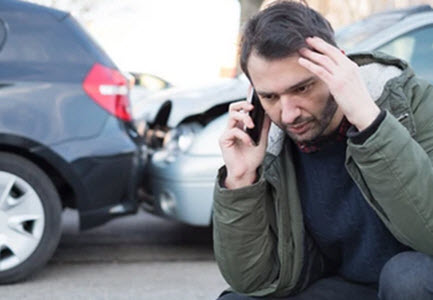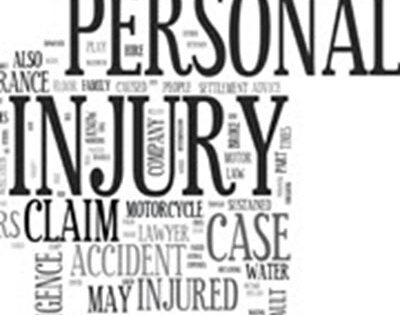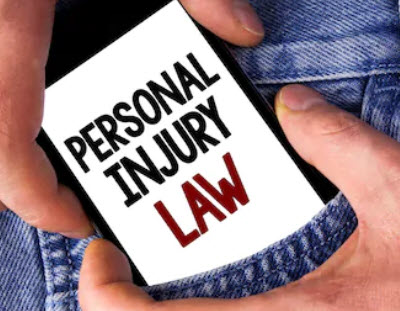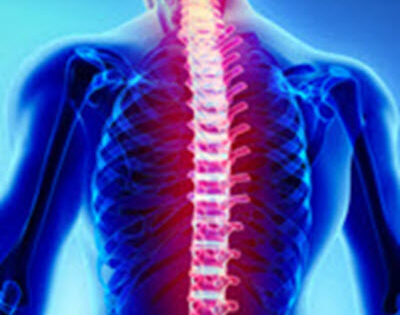Personal Injury

What Floridians Should Know About Shoulder Injuries
An injured shoulder can significantly hinder your daily activities and negatively affect your finances. Fortunately, when someone else’s negligence causes you a shoulder injury, you can seek compensation from them or their insurance company. However, proving a link between a shoulder injury and an accident can at times be challenging. The shoulder performs numerous… Read More »

What Do I Do If My Insurance Company Refuses To Pay My Florida PIP Claim?
Florida being a no-fault state, expects motorists to turn to their insurance companies after auto accidents. That is why each Florida motorist must carry Personal Injury Protection (PIP) coverage of at least $10,000. Regardless of who is at fault, a motorist is entitled to receive compensation from their PIP coverage. PIP can cover up… Read More »

The Difference Between First-Party and Third-Party Car Accident Insurance Claims
In Jacksonville and the whole of Florida in general, car accident victims that suffer injuries and losses are allowed to make two types of insurance claims: first-party and third-party insurance claims. Since Florida is a no-fault state, an injured motorist is expected to file a claim with their insurance company after an auto accident…. Read More »

How To Tell if You Have a Car Accident Case Against the Other Driver
To determine whether you have a legal basis for filing a lawsuit against the other driver after a Florida car accident, you must answer these three crucial questions. What or who caused the accident? Did you sustain a severe injury after the accident? Did your injuries result in any damages? What or Who Caused… Read More »

FAQs About Florida’s PIP Insurance Coverage
In Florida, motorists are usually expected to file claims with their own insurance companies after auto accidents, regardless of who caused the accident. For a motorist to file a claim from their insurance company after an accident, they must have personal injury protection (PIP) insurance coverage. To help you understand more about PIP, we… Read More »

Crucial Documents Personal Injury Attorneys Usually Need When Handling Different Types of Personal Injury Cases
The importance of documentation in personal injury cases can never be over-emphasized. With the help of proper documentation, you and your personal injury attorney can prove your claim for damages and obtain fair compensation. Therefore, it is vital that after your accident, you collect enough documents and evidence to help your case. The documents… Read More »

Lay Witnesses vs. Expert Witnesses in Personal Injury Cases: What’s the Difference?
You’ve probably heard of the terms “lay witnesses” and “expert witnesses,” but do you know the exact roles a lay witness and an expert witness can play in your personal injury case? Most likely, you don’t have a deep understanding of these two types of witnesses’ roles in personal injury cases and what it… Read More »

Large Truck Accident Lawsuits: The Most Common Challenge Associated With Such Lawsuits and How to Overcome This Challenge
Large truck accidents cause many deaths on Florida roads, and these accidents seem to increase as the years go by. According to the Federal Motor Carrier Safety Administration, the number of Florida fatal crashes involving large trucks was 170 in 2010 and 295 in 2018. That shows that the number of fatal accidents involving… Read More »

Ride-Share Accidents: Do Ride-Share Companies Compensate Passengers After Accidents?
Any Floridian who uses ride-sharing services can attest that such services are affordable and extremely convenient. Unfortunately, even though using Uber or Lyft is a convenient and affordable way for Floridians to move around, just like any other cars, vehicles that motorists working with Uber or Lyft operate are prone to auto accidents. So,… Read More »

How Much Is Your Spinal Cord Injury Lawsuit Worth?
A spinal cord injury prevents your spinal cord from transmitting nerve signals to other body parts. When you suffer a spinal cord injury, your body becomes unable to perform certain functions to a certain level, depending on whether the injury is complete or incomplete. After a spinal cord injury, your movement could, for instance,… Read More »






